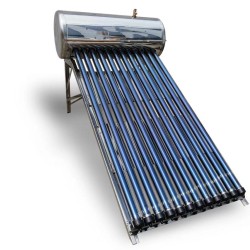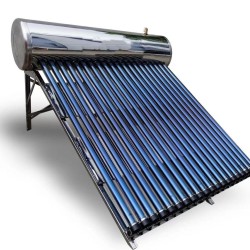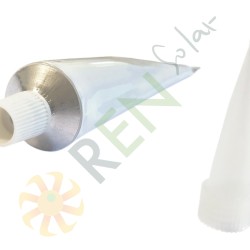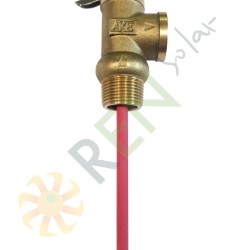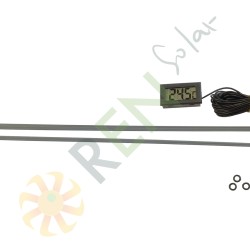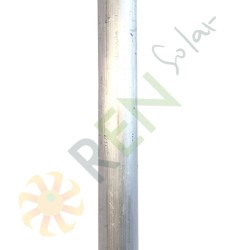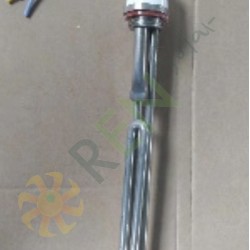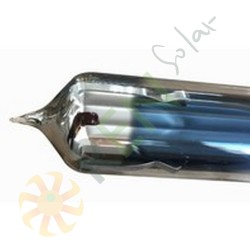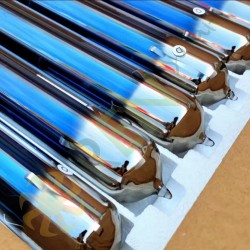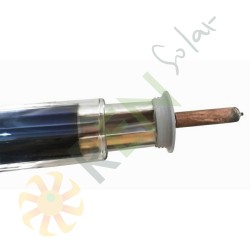Solar water heaters
Why use solar collectors for water heating and its advantages?
Many people often share the opinion that solar water heating or solar collectors in general are not convenient and not worth it. In addition, this technology is very often and mistakenly confused with photovoltaic solar panels, which are used only for the production of direct electricity, and which, thanks to the support of ecological resources becoming more expensive, have not gained much popularity among the general public. Solar collectors or, if you prefer, solar panels, are intended not only for heating domestic hot water, but also for heating swimming pools, hot tubs or space heating. In addition, they are a completely different technology than photovoltaic solar panels.
At present, when energy (electricity, gas and solid fuels) are still becoming more expensive, at a very fast rate of up to 10% per year on average, solar water heating is becoming a great option to save a lot of money for these energies with solar water heating. Today's rapid technological development, the increasing efficiency of solar collectors and their decreasing price, these technologies are becoming easily accessible to all of us. While in the earlier days of expensive flat solar collectors, solar hot water heating was a matter of more ecologically oriented people, Today, in the era of far more efficient and cheaper vacuum tube solar collectors, this type of heating is becoming an available alternative for the mass majority of everyone who wants to save and at the same time is ecologically minded. Water heating with solar systems is also suitable for small cottages, larger cottages or for solitude, because solar systems are controlled by a control unit and therefore do not need too frequent human intervention and thus can function even without his supervision.
In contrast to frame flat collectors, today's modern vacuum collectors are able to supply heat even under cloudy skies or even at a lower ambient temperature, but only in sunny weather. So, in addition to covering the need for water heating in 2/3 to 3/4 of the year, solar collectors can also help with heating in spring and autumn. However, in the case of very low temperatures and cloudy skies, it is necessary to use another additional source of heating (additional heat sources). In principle, vacuum solar collectors are a suitable ecological alternative, but also an economical one.
And why are vacuum tube solar collectors better than flat panel solar panels?
Simply, compared to flat solar panels, vacuum solar collectors are highly efficient with a minimum lifespan of 25 years. With the help of vacuum solar collectors, you can achieve maximum performance and permanently the highest solar profits, especially in spring, autumn and winter (lower surpluses occur in summer). Thanks to the so-called "dry connection" of the tubes by the Plug-in system (indirect heating), these collectors are considered very safe in operation. Solar panels of the "HEAT PIPE" type are closed, i.e. the heat-carrying liquid circulates in the collector/collector tank and not in separate tubes. A big advantage of tubular collectors is that if one of the tubes is damaged, it can be replaced. This exchange is simple and economical.
In addition, a big advantage of these solar panels is that they also receive diffuse radiation. This means that the entire system works even if the sky is cloudy. Unlike flat collectors, tube collectors can receive radiation from multiple angles due to their rounded tube shapes. Thanks to this, the collector can work all day, from sunrise to sunset. In addition, it absorbs radiation from all sides, including reflections. For Central European conditions, tubular collectors are therefore the most suitable variant tested in various parts of Europe, which enables almost year-round solar water heating. There are some physical limits, but compared to flat solar panels, the vacuum ones are far more efficient and can heat domestic hot water even in winter. As for spring and autumn sunny days, vacuum solar panels can fully heat DHW just like in summer. This is due to the fact that enough solar radiation falls on the vacuum collectors and lower temperatures no longer play an important fundamental role in this case.



